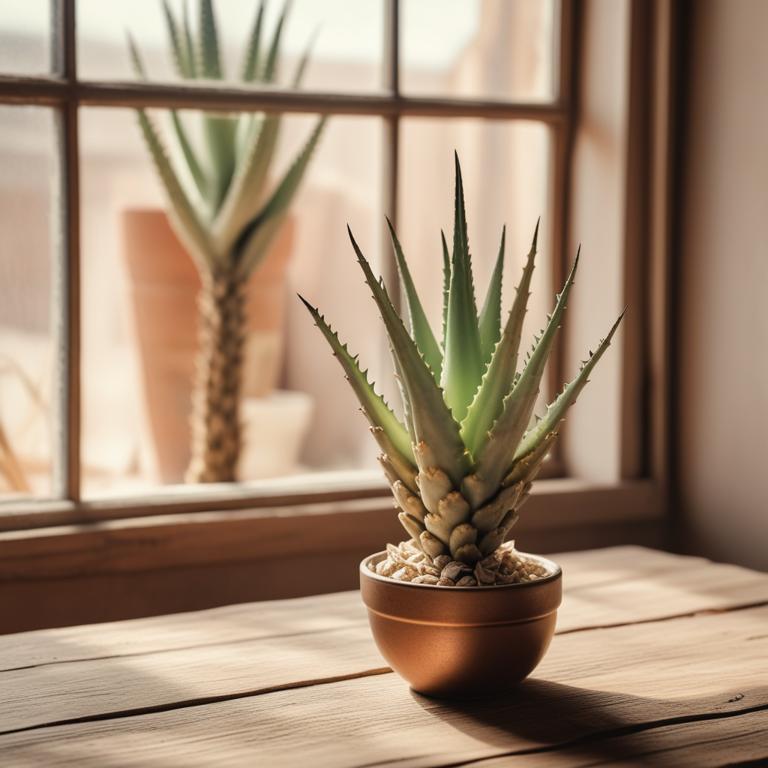Updated: Dec 1, 2024
Causes and Treatment of Eye Infection with Medicinal Herbs and Herbal Preparations

Eye infections, like pink eye or conjunctivitis, can be a real nuisance.
They cause redness, itchiness, and discharge in the eyes, making it hard to focus and even more difficult to sleep. If left untreated, they can spread to other parts of the face and even become a chronic problem. Eye infections are often caused by bacteria or viruses, and can be spread through close contact with someone who has the infection, or by touching something contaminated and then touching your eyes. There are some natural remedies that can help soothe and heal eye infections.
Herbs like calendula, aloe vera, and chamomile have anti-inflammatory properties that can reduce redness and swelling. Eye infections can also be treated with herbal teas, such as those made from eyebright, which is said to have antimicrobial properties that can help clear up the infection. To use these herbs, you can make a tea by steeping dried calendula or eyebright flowers in hot water. You can also apply a cooled aloe vera gel to the affected eye to soothe the skin. Some people also use a combination of herbal remedies, like mixing aloe vera with tea tree oil, to create a paste that can be applied directly to the eye.
These herbal remedies can be a helpful addition to the treatment of eye infections, but it's always best to consult with a healthcare professional before trying any new remedies.
Table of Contents
- What are the factors that cause eye infection?
- What are the benefits of using herbs for treating an eye infection?
- What are the primary medicinal herbs for treating eye infection?
- What are the most commonly prescribed herbal remedies for eye infection?
- Should you steer clear of certain herbs if you have an eye infection?
- FAQ
What are the factors that cause eye infection?
The main causes of eye infection are several types of germs that can get into your eyes and cause problems.
One common cause is bacterial conjunctivitis, which is usually caused by Staphylococcus aureus bacteria. These bacteria can get into your eyes through touching your eyes, sharing makeup or contact lenses, or having a cut or wound near your eyes. Another cause is viral conjunctivitis, which is often caused by the common cold virus.
This type of infection is highly contagious and can spread quickly through touching or sharing contact lenses. Fungal keratitis is a rare but serious type of eye infection that's often caused by fungi that enter the eye through a cut or wound. This type of infection is more common in people who wear contact lenses or have a weakened immune system. Herpes simplex is a viral infection that can cause eye problems, including conjunctivitis and keratitis.
It's usually caused by touching an infected person's skin, or by touching something that has the virus on it, and then touching your eyes.
What are the benefits of using herbs for treating an eye infection?
Using herbs to treat eye infections can be very beneficial.
One of the main advantages is that they are often natural and gentle on the eyes, reducing the risk of further irritation or damage. Herbs can also help to reduce swelling and inflammation, which can make the eyes feel more comfortable and ease the pain.
They may also have antibacterial properties, helping to fight off the underlying infection and speed up the healing process. Additionally, herbs can be used topically, which means they can be applied directly to the affected area, allowing for more targeted treatment. This can also make them a good option for people who prefer to avoid harsh chemical treatments or medications.
Furthermore, using herbs can be a cost-effective way to treat eye infections, as they are often readily available and inexpensive.
What are the primary medicinal herbs for treating eye infection?

Herbs have been used for centuries to help soothe and heal eye infections.
Echinacea purpurea is a popular herb that helps boost the immune system, reducing the severity and duration of eye infections. Its anti-inflammatory properties also help to reduce swelling and ease pain. Euphrasia officinalis, also known as Eyebright, is another herb that's been used to treat eye infections. It has antibacterial properties that help fight off infections, and its anti-inflammatory properties reduce swelling and redness. Calendula officinalis is often used to soothe and calm irritated eyes.
Its anti-inflammatory and antiseptic properties help to reduce swelling and prevent infections from spreading. It's also rich in antioxidants that help protect the eyes from damage. Aloe barbadensis is commonly used to treat eye burns and irritation. Its anti-inflammatory properties help to reduce swelling and ease pain, while its soothing properties calm and comfort the eyes. Symphytum officinale, or Comfrey, is a herb that's been used to treat eye injuries and infections.
Its anti-inflammatory properties help to reduce swelling and ease pain, while its mucilaginous properties soothe and calm irritated eyes.
What are the most commonly prescribed herbal remedies for eye infection?

Herbal preparations can be very helpful in treating eye infections.
One option is an herbal ointment, which is a thick paste made from herbs that can be applied directly to the affected eye. The herbs in the ointment, such as aloe vera or calendula, have anti-inflammatory properties that can help reduce swelling and discomfort. Another option is an herbal tincture, which is a liquid extract of herbs that can be applied to the eye using a cotton swab. Tinctures are great because they can be easily absorbed into the skin, making them a good choice for treating eye infections. Herbal decoctions are also a good option for treating eye infections.
A decoction is a liquid made by steeping herbs in hot water, and it can be used to make eye drops or ointments. Decoctions are often made with herbs like echinacea or goldenseal, which have antimicrobial properties that can help fight off the infection. If you prefer to take herbal eye treatments in a capsule, there are many options available. Herbal capsules contain dried and powdered herbs that can be swallowed whole, and they can provide a concentrated dose of beneficial compounds to help fight off the infection. Lastly, herbal eye drops are a convenient and easy way to treat eye infections. These drops are made by infusing herbs in a liquid, and they can be applied directly to the affected eye using an eye dropper.
Herbal eye drops often contain herbs like tea tree oil or chamomile, which have anti-inflammatory and antimicrobial properties that can help soothe and heal the eye.
Additional Resources:
Should you steer clear of certain herbs if you have an eye infection?
If you have an eye infection, it's best to avoid using certain herbs that can make things worse.
Ginkgo biloba, for example, can increase blood flow to the eyes, which can irritate the infection even more. Valeriana officinalis, commonly known as valerian root, is usually used to calm nerves, but it can also increase the risk of bleeding in the eyes, which is not what you need when you're dealing with an infection.
Hypericum perforatum, or St. John's Wort, can interact with other medications you might be taking to treat your eye infection, and this can cause more harm than good. Hydrastis canadensis, or goldenseal, contains compounds that can make your eyes more sensitive, which can make it harder to treat the infection. Teucrium chamaedrys, or germander, has been known to cause liver damage in some people, and using it when you have an eye infection can put your whole body at risk.
When you're dealing with an eye infection, it's always better to err on the side of caution and avoid using herbs that can make things worse.
FAQ
Are there any specific herbs that can prevent eye infection?
Echinacea and goldenseal are herbs that may help prevent eye infections.
Echinacea is known for its immune-boosting properties, while goldenseal has antibacterial properties that can fight off infections. Some people also use calendula to soothe and protect the eyes.
These herbs are often used in combination to promote eye health and prevent infections.
Is it safe to use herbal remedies for eye infection during pregnancy?
When it comes to eye infections during pregnancy, it's generally best to stick with what's known to be safe.
Some herbal remedies can be too strong or interact with other things you're taking.
If you're considering using herbal remedies, check their ingredients carefully and make sure you're not allergic to any of them.
Are there any herbs that can reduce the frequency of eye infection?
Some herbs like echinacea and goldenseal have antimicrobial properties that may help reduce the frequency of eye infections. Echinacea is thought to boost the immune system, while goldenseal's active compound, berberine, has been shown to have antibacterial and antifungal properties that can help fight off eye infections naturally.
Related Articles

Frizzy Hair Causes, Medicinal Herbs, and Natural Preparations

Puffy Eyes: Understanding the Causes and Finding Natural Remedies

Oral Thrush: Understanding the Causes, Medicinal Herbs, and Herbal Solutions for Relief

Natural Treatments for Nail Fungus: Causes and Herbal Remedies

Ingrown Toenail: Causes, Symptoms, and Herbal Preparations for Relief






